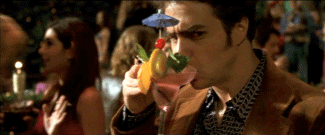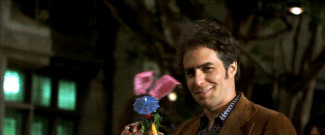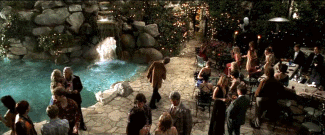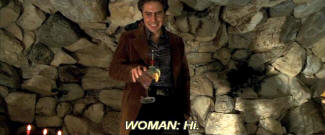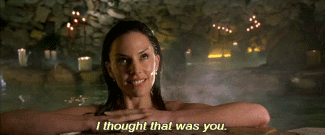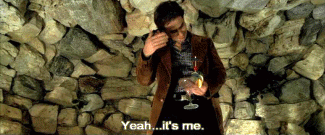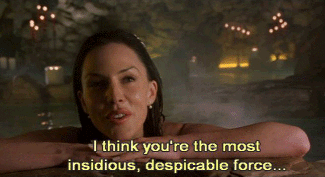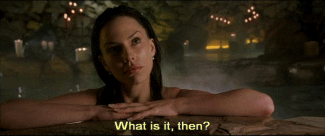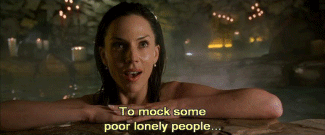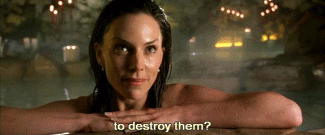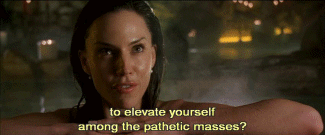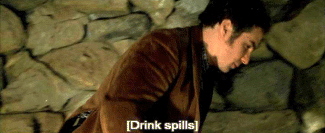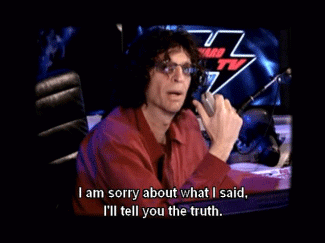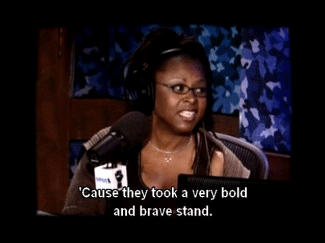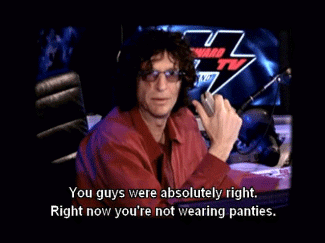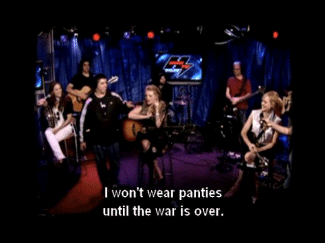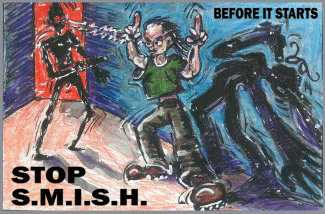TELEVISION AND THE POLITICS OF HUMILIATION
by Nicolaus Mills
Winter, 2015
NOTICE: THIS WORK MAY BE PROTECTED BY COPYRIGHT
YOU ARE REQUIRED TO READ THE COPYRIGHT NOTICE AT THIS LINK BEFORE YOU READ THE FOLLOWING WORK, THAT IS AVAILABLE SOLELY FOR PRIVATE STUDY, SCHOLARSHIP OR RESEARCH PURSUANT TO 17 U.S.C. SECTION 107 AND 108. IN THE EVENT THAT THE LIBRARY DETERMINES THAT UNLAWFUL COPYING OF THIS WORK HAS OCCURRED, THE LIBRARY HAS THE RIGHT TO BLOCK THE I.P. ADDRESS AT WHICH THE UNLAWFUL COPYING APPEARED TO HAVE OCCURRED. THANK YOU FOR RESPECTING THE RIGHTS OF COPYRIGHT OWNERS.
As the election media wars heat up, both Democrats and Republicans are looking for an edge, whether it means finding an ad that will appeal to swing voters like the “NASCAR dads” or figuring out how to get more of their candidates on the Sunday morning talk shows. But what gets little attention these days are the political implications behind the television programming that under the guise of being reality based has made a culture of humiliation the key to prime time audience ratings.
Making entertainment out of people’s weaknesses has historically been part of television. Candid Camera, The Gong Show, and The Dating Game all capitalized on getting those who appeared on them, whether as surprise participants or contestants, to reveal themselves in spontaneous, often unflattering ways. But there was a lighthearted, practical-joke quality to these shows. The fluff was there from the start, and in the case of The Gong Show and The Dating Game the rewards for winning were paltry.
WOMAN: Hi.
CHUCK: Hi.
WOMAN: I thought that was you.
CHUCK: Yeah, it's me.
WOMAN: [Woman laughs] Well, I'm glad to meet you. I've seen "The Gong Show."
CHUCK: Oh. Yeah, well ...
WOMAN: I think you're the most insidious, despicable force in entertainment today. How dare you subject the rest of the world to your loathsome views of humanity?
CHUCK: Yeah, I don't think it's that loathsome.
WOMAN: What is it, then?
To mock some poor lonely people who are just craving a little attention in their lives ...
to destroy them? I mean, they're still people. They still deserve a little respect and compassion. Who the hell are you, and what the fuck have you ever done ...
to elevate yourself among the pathetic masses? Oh, that's right. You created "The Dating Game."
Wow. That's right up there with the Sistine Chapel.
[Drink spills]
-- Confessions of a Dangerous Mind, directed by George Clooney, Starring Sam Rockwell, Drew Barrymore and Julia Roberts[/url]
Today’s humiliation TV is a different story. The financial stakes are high, and participants are subjected to prolonged exposure before the camera. Their failings -- whether of looks or character -- are discussed in front of them, and if they can be made to cry, so much the better.
The shows that constitute humiliation TV have been classified by programmers and critics alike as reality-based television. But there is nothing real about them, if by real we mean programs designed to show ordinary people in the process of going about day-to-day life. Humiliation TV shows are contrived from start to finish, and what they feature are not winners so much as losers to whom the viewing audience can feel superior. Their closest television roots lie in the shows of Jerry Springer and Howard Stern, where meanness is the norm, and nobody comes away with his dignity intact.
[Howard Stern] The President has completely blown it with this war.
I am sorry about what I said, I'll tell you the truth.
[Woman] [About the Dixie Chicks] 'Cause they took a very bold and brave stand.
[Howard Stern] You guys were absolutely right. Right now you're not wearing panties.
[Natalie Maines] Nope.
[Howard Stern] Is that a political thing?
[Woman] Is that a Dixie Chick thing?
[Natalie Maines] I won't wear panties until the war is over.
-- Dixie Chicks Shut Up & Sing, directed by Barbara Kopple and Cecilia Peck
No show better illustrates the elements of humiliation television than the highly popular series The Apprentice. The show won huge ratings by pitting sixteen aspiring businessmen and women in a battle to win a $250,000 job with real estate mogul Donald Trump, whose weekly task was to tell a contestant, “You’re fired.” The “apprentices” were divided into teams and given a project (renting an apartment, making a profit from bicycle cabs) in which they knew in advance that one member from the losing side would be cut. The projects themselves were trivial, closer to a test contrived by a college fraternity than a business school, and that was the point. A serious approach to the business world would have been a distraction for the show as well as for Trump, whose hotel and casino holdings are currently mired in debt. The Apprentice centered not on the success or failure of any project but on the losing team’s having to face Trump across a huge conference table. Would the apprentices turn on each other? Would the hard-working contestant be defeated by the manipulative contestant? This was the drama the audience could not wait to see, and the most successful programs were the ones in which Trump fired someone the viewers had learned to hate, and the loser got into a waiting cab and drove off alone into the New York night.
In New York there are now Trump billboards that feature The Donald looking very stern and saying, “You’re fired,” and when we look at our television guides, we can see the formula that The Apprentice has perfected is everywhere.
The rhetoric is a serious development in intelligence cult programming for mass consumption. The populace is subjected to the same crazed systems used to indoctrinate recruits of the mind control cults.
-- CIA Mind Control at Stanford Research Institute, by Alex Constantine
On American Idol: The Search for a Superstar, a variation of the talent show that from Ted Mack’s Original Amateur Hour to Star Search has always drawn an audience, the key is not picking the winning contestant but humiliating the losing one. Although some winners on American Idol, notably the singer Kelly Clarkson, have gone on to popular success, the reason viewers watch the program is not to discover the next Kelly Clarkson. They watch to see what Simon Cowell, a member of the celebrity panel that judges the contestants, has to say. A British-born record executive, Cowell specializes in badgering hapless singers, and it is his put-downs that fans wait for each week. “Don’t sing again. I think it’s lucky we didn’t charge the audience to come in tonight because they’d ask for a refund,” he told one loser after a particularly bad performance. As long as Cowell is on his game, the producers don’t even have to worry about the talent level of those who appear on their program. All they have to do is book a steady supply of lousy performers whom Cowell can savage.
On Survivor a similar transformation has happened to the traditional nature show. Contestants are placed in an exotic wilderness setting, usually a South Pacific island, with which they and their audience are unfamiliar. But their next step is not to go exploring, as if they were on the Discovery Channel. Instead, the contestants are divided into teams and pitted against each other in challenges, typically canoe races or building a shelter, decided upon in advance by the show’s producers. The losing team must send one of its members off the island, and the climax of the show comes when a vote is taken and viewers get to see who has failed to make the right friendships (contestants are encouraged to form alliances with each other) or told the best lies (one contestant tried to win sympathy by claiming that his grandmother had just died). There is no waiting cab for the losers. They are ushered out of the campsite and into the night, but as in The Apprentice, the money shot is built around exclusion.
On Average Joe, humiliation TV has even changed the old Dating Game formula in which three bachelors hidden behind a screen competed to see which one could persuade a bachelorette who was asking them questions to go out on a date. On Average Joe the stakes have been made much higher. The assumption is that the bachelorette is choosing a potential partner for life, not just a date, and the idea of her making a decision this important sight unseen has been done away with.
In the first Average Joe the catch was that the bachelorette, Melana Scantlin, a former National Football League cheerleader and Miss Missouri beauty queen, had to choose from a genuinely unattractive lot. The drama of the first shows in the series came from Melana’s being a good sport and choosing the Average Joes she was interested in on the basis of personality. The drama of the concluding shows came from the three handsome men who were suddenly added to the mix -- a step that humiliated the remaining Average Joes and gave Melana the option of choosing her Joe on the basis of physical appeal, which in the end she did, selecting Jason, a good-looking student/waiter, over Adam, an original Joe.
WHETHER THERE are any boundaries these shows will not cross in the future is hard to know. Many of them are openly contemptuous of the feelings of people they have recruited. On Joe Millionaire, twenty female contestants were told that Evan Marriott, the man whose affections they would be competing for, was worth $50 million, when the truth was that the handsome Evan was a $19,000-a-year construction worker. The premise of the show was that women are gold diggers who will always make themselves available to rich men.
On Fear Factor, contestants have been asked not simply to meet difficult challenges but to participate in gross-out contests in which the winner is whoever can eat the most spiders or last the longest in a vat filled with snakes and night crawlers. On Extreme Makeover, a program in which participants undergo plastic surgery, those who make it onto the show appear only briefly after their surgery. The show counts on its participants’ self-loathing to give it appeal. Most of their time before the camera is spent telling the audience and their plastic surgeons what they hate about themselves and exactly what it is about their teeth, breasts, nose, skin they want changed.
STOP S.M.I.S.H. BEFORE IT STARTS, by Tara Carreon and Anonymous
A new mental disease for the Internet age is proposed for inclusion in the Diagnostic Manual of Mental Disorders: Social Media-Induced Self-Hate (“SMISH”). This proposal stems from the writer’s inquiry into a closely-related disorder, dubbed SMIDS for Social Media-Induced Delusional Disorder, and explores the likelihood that both SMISH and SMIDS may simultaneously afflict one individual, with one disorder or the other gaining the upper hand due primarily to the nature of the sufferer’s interactions with Social Media.
The primary subjective characteristics of SMISH are a sense of insecurity and compulsive reinforcement-seeking behavior through Social Media. Secondary characteristics are a fear of judgment by Social Media Peers (“SMPeers”) and compulsive propitiatory behavior intended to head off judgment and establish trust-links that will protect the SMISH-sufferer from becoming an Object of Hatred among their SMPeers. A tertiary characteristic is total involvement with the Social Media world and a corollary loss of interest in relationships with Real World Peers aside from interactions within the Social Media world. At that point, SMISH has ensnared the sufferer in a cycle of addictive behavior from which they will likely exit only after a period of serious self-assessment, or an intervention by concerned friends and relations.
-- S.M.I.S.H.: Social Media-Induced Self Hate, by Charles Carreon
In a thoughtful essay on The Apprentice and the Martha Stewart trial, New York Times columnist Frank Rich opined that the kudos Donald Trump was winning for his role in the show were a sign that the public was at last fed up with corrupt CEOs and liked Trump’s blunt way of doing business. Rich’s populist conclusion is comforting, but does not fit the facts. Much closer to the truth are the observations of Jeffrey Sonnenfeld, the associate dean of the Yale School of Management, who in a Wall Street Journal op-ed piece noted that the selection process on The Apprentice “resembles a game of musical chairs at a Hooter’s restaurant where sexual baiting and pleading is confused with effective salesmanship.”
Given all the media hoopla you'd think that NBC's hit "reality" show featuring Donald Trump was the answer to the nation's urgent search for credible leadership models in politics and business. Yet despite Mr. Trump's claims that "The Apprentice" should be required viewing at the nation's top business schools, I don't see how weekly viewings of a billionaire shouting "You're fired!" will benefit tomorrow's leaders.
So why are 18 million Americans glued to the puffery, pushiness and deception of "The Apprentice"? In part it's because we are fascinated with train wrecks -- witness the public's seemingly endless interest in the Martha Stewart saga, the ruinous spending of rogue CEOs like Tyco's Dennis Kozlowski, and the abuses of Adelphia's Rigas family.
But such rapt attention should hardly be confused with admiration. Many CEOs I talk with shudder at this ill-timed portrait of corporate leadership just when we need to restore trust in corporate values. Recent Gallup surveys indicate 75% of the general public believes that corruption is widespread in business. With its "real business" setting, Mr. Trump's show taps into the cynical view that business is all about chest-pounding and winning at all costs.
Rather than show inspirational team leadership and the building of coherent cultures, "The Apprentice" teams are designed as circular firing squads -- hardly the staffing pattern of an enduring enterprise. The selection process resembles a game of musical chairs at a Hooters restaurant where sexual baiting and pleading is confused with effective salesmanship. The assigned team-projects neglect the core functions of leadership, such as integrity, invention and inspiration. No new goods or services are created, no business innovations surface, and no societal problems are solved.
Instead, we see people hawking sex, clothes, booze, water, bags of dirt, more sex, and celebrity access. Mr. Trump's original design when first pitching the show in 2001 was to call it "The Billionaire" and to give four contestants 30 minutes to try to spend a million dollars -- again not skilled leadership in action.
Adding to the dysfunctional design is the strange ratings-inspired selection criteria itself. The most odious contestants are retained long after general condemnation by team members, the general public and even Mr. Trump's own on-air lieutenants. Contestants are fired by The Donald for failing to be sufficiently confrontational or for favoring candor over loyalty in the boardroom. Deceptive presentations of product value and misleading negotiating tactics are encouraged. These are not qualities for long-term commercial relationships. No wise party, in reality, would be a business partner of Trump's TV winners for a second or third transaction.
Yet Mr. Trump's gleeful push of another crew member off the gangplank at the close of each show keeps us coming back for more.
Our curiosity over the tortured logic behind his mysterious choices has a magnetic draw as does the raw power to change the fate of someone else's life at your pleasure. Roman crowds packed the Colosseum to watch the gladiators battle each other and loved the Emperor's glance to the onlookers before condemning the loser to death.
A quarter-century ago, NBC discovered this same formula in its mindlessly cruel but spellbindingly popular "The Gong Show," where contestants in a talent show were ejected from the program by egomaniacal host/producer Chuck Barris pounding a gong. Mr. Trump's pursed lips are the equivalent of Barris's gong. Indeed, "The Apprentice" is not a corporate reality show, it's a business gong-show.
-- The Last Emperor, by Jeffrey Sonnenfeld

